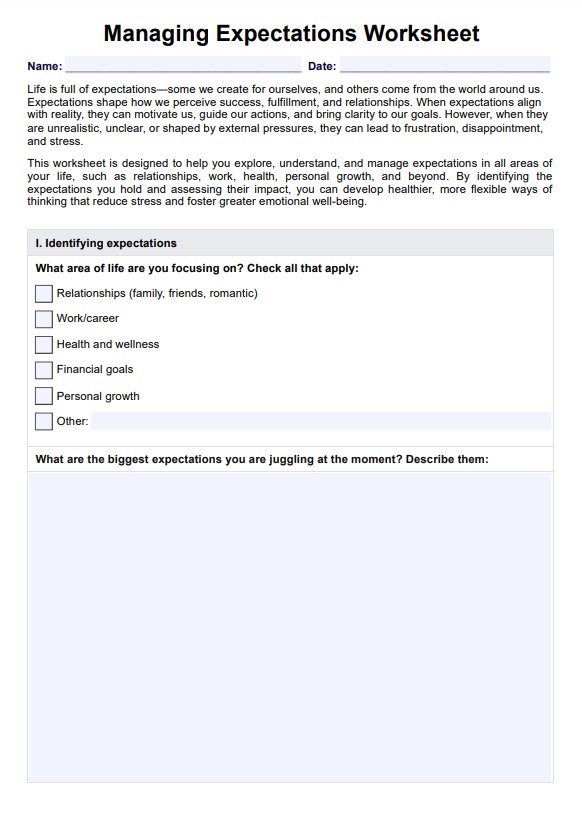The worksheet provides a structured way for clients to reflect on their expectations and evaluate whether they are realistic. It helps uncover how past experiences or societal influences may have shaped these expectations and allows clients to focus on aligning them with their personal values. By doing so, clients can reduce stress and disappointment while setting goals that feel achievable and meaningful.

Managing Expectations Worksheet
Empower clients to make clear and realistic expectations with our Managing Expectations Worksheet. Incorporate this free tool into your practice.
Managing Expectations Worksheet Template
Commonly asked questions
Reflection activities help clients pause and think deeply about where their expectations come from and how they impact their lives. Exploring influences like past experiences or societal norms gives clients clarity about whether their expectations are realistic or need adjustment. Reflection fosters self-awareness and helps bridge the gap between what clients expect and what’s realistic, ultimately guiding them toward healthier outcomes.
The worksheet uses psychological strategies like cognitive reframing and emotional regulation to help clients manage their expectations. By encouraging clients to reflect on how society and their past have influenced their thinking, the worksheet helps them redefine their expectations in a way that aligns with reality and supports emotional well-being. It also empowers clients to create positive changes that reduce frustration and promote growth.
EHR and practice management software
Get started for free
*No credit card required
Free
$0/usd
Unlimited clients
Telehealth
1GB of storage
Client portal text
Automated billing and online payments











